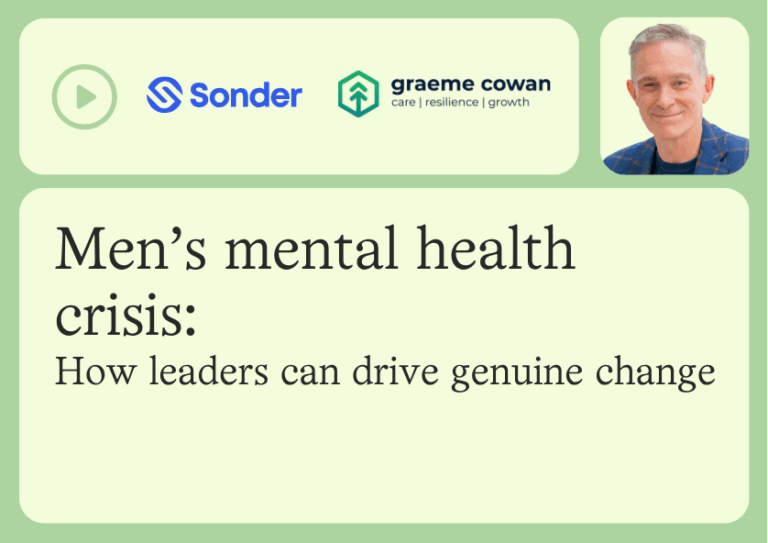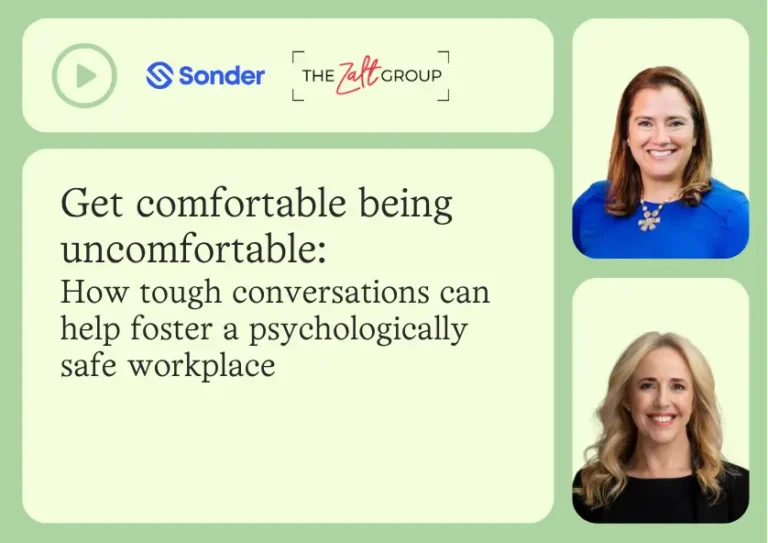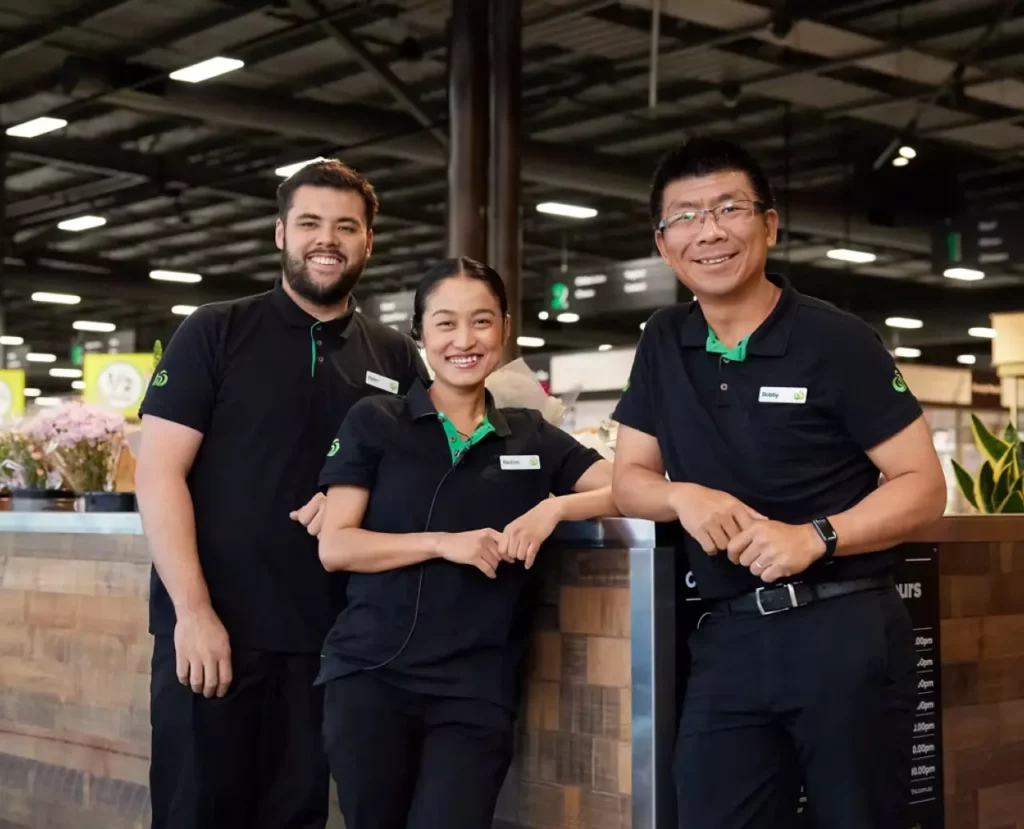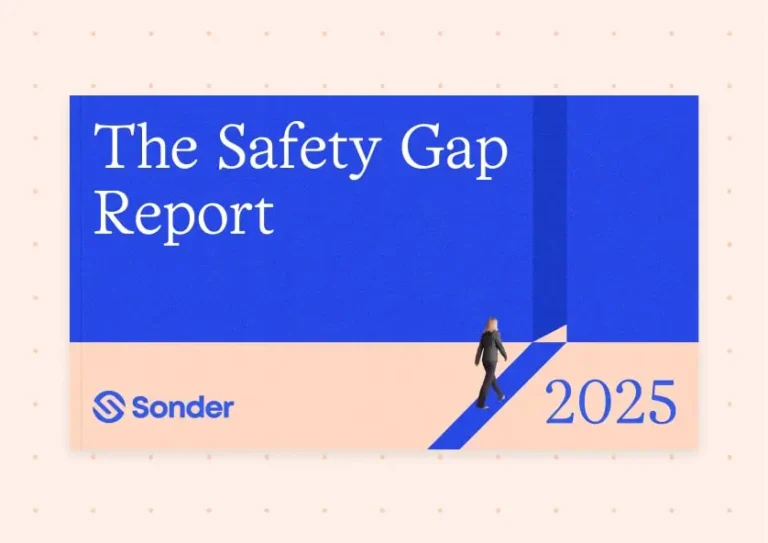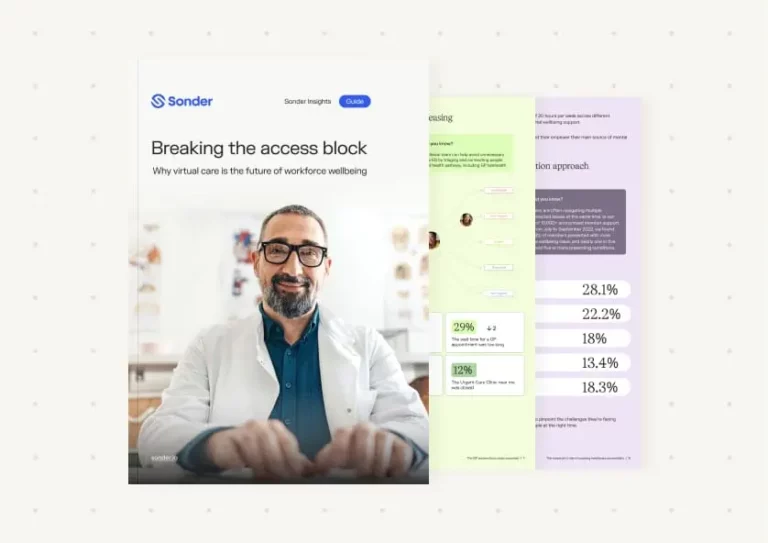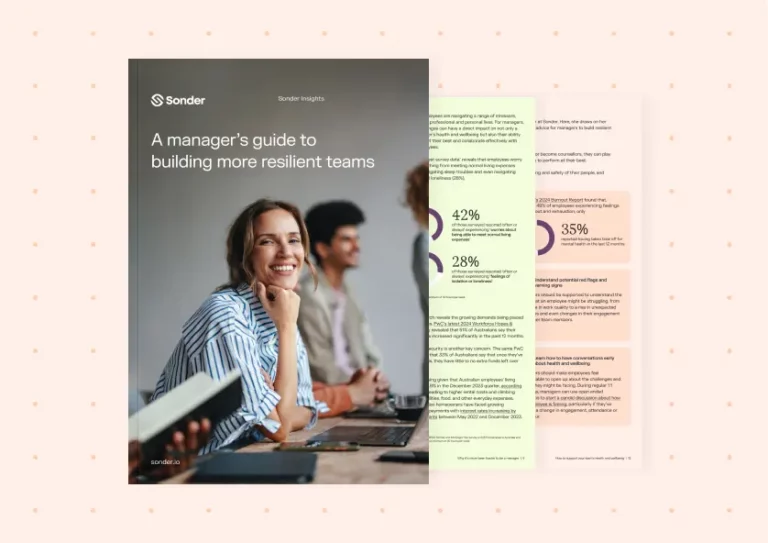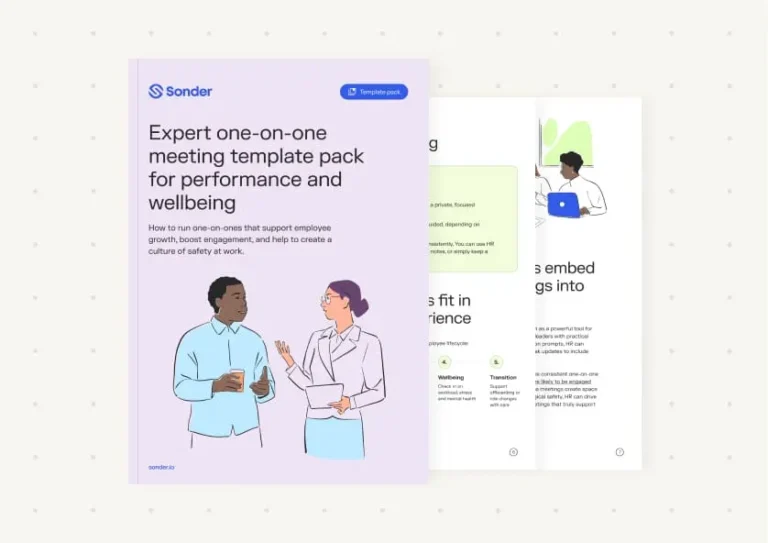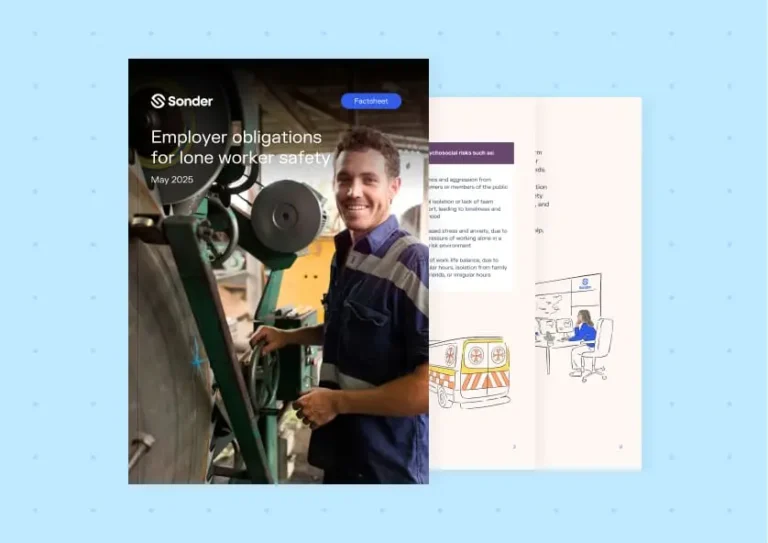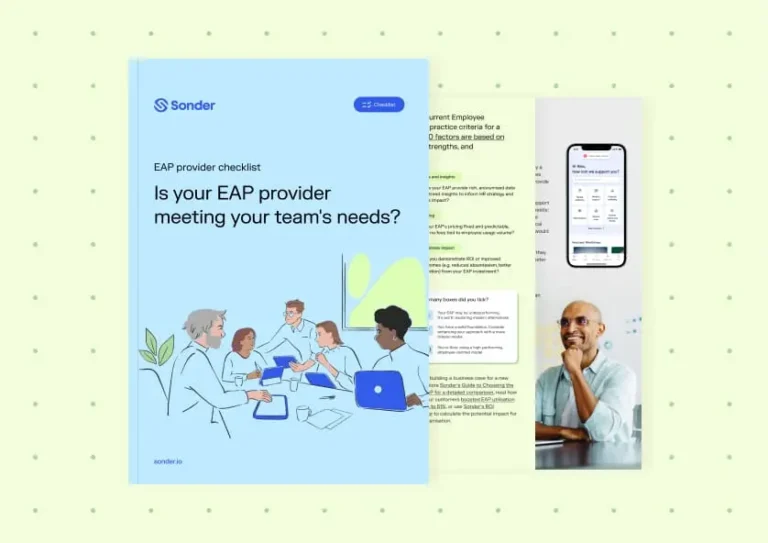

Employer obligations for lone worker safety
Working alone can significantly increase exposure to both physical and psychosocial hazards. Are you confident that you’re doing everything you can to protect these vital members of your workforce and meet your evolving legal obligations? Help protect your business and people from risk. Download the Employer obligations for lone worker safety factsheet now.
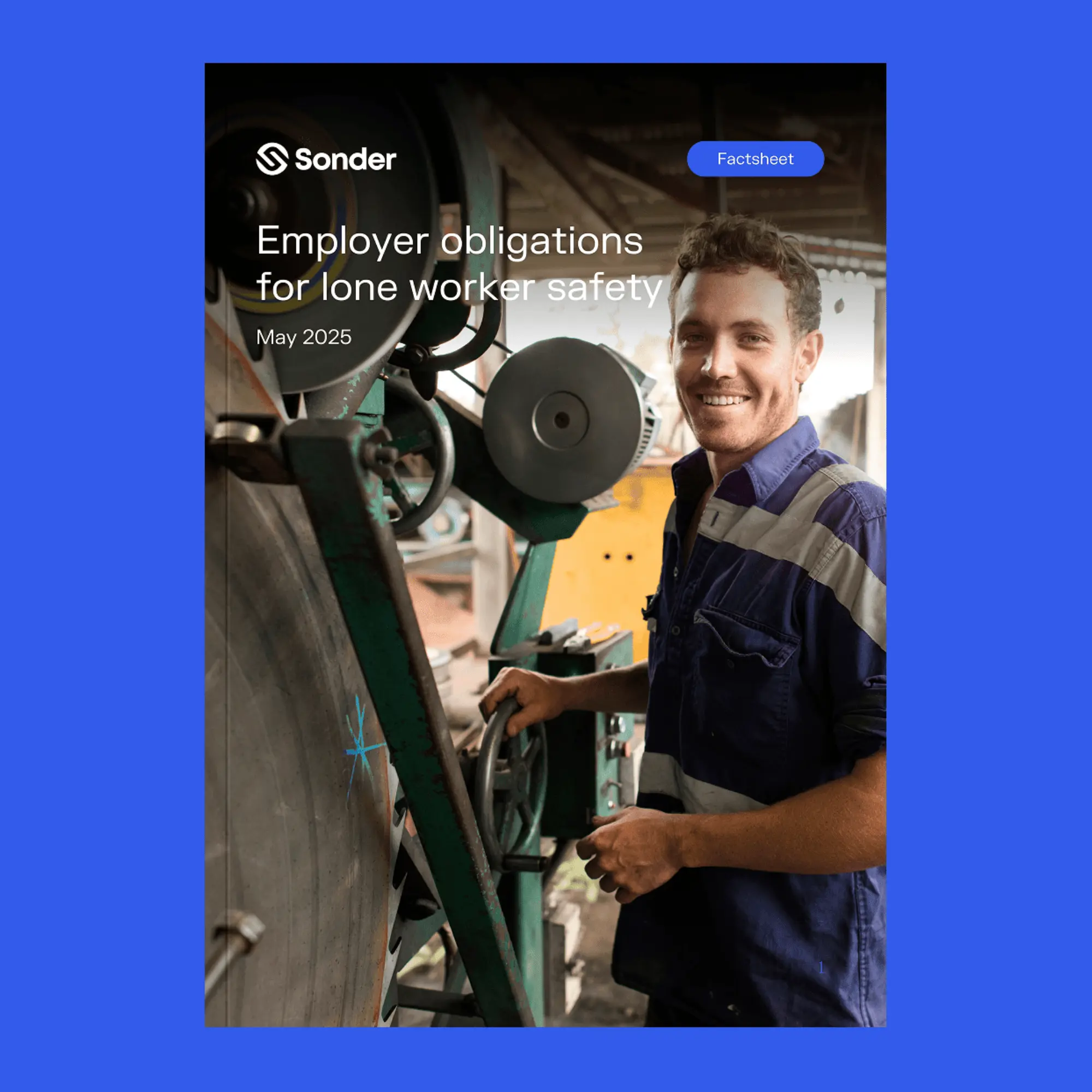
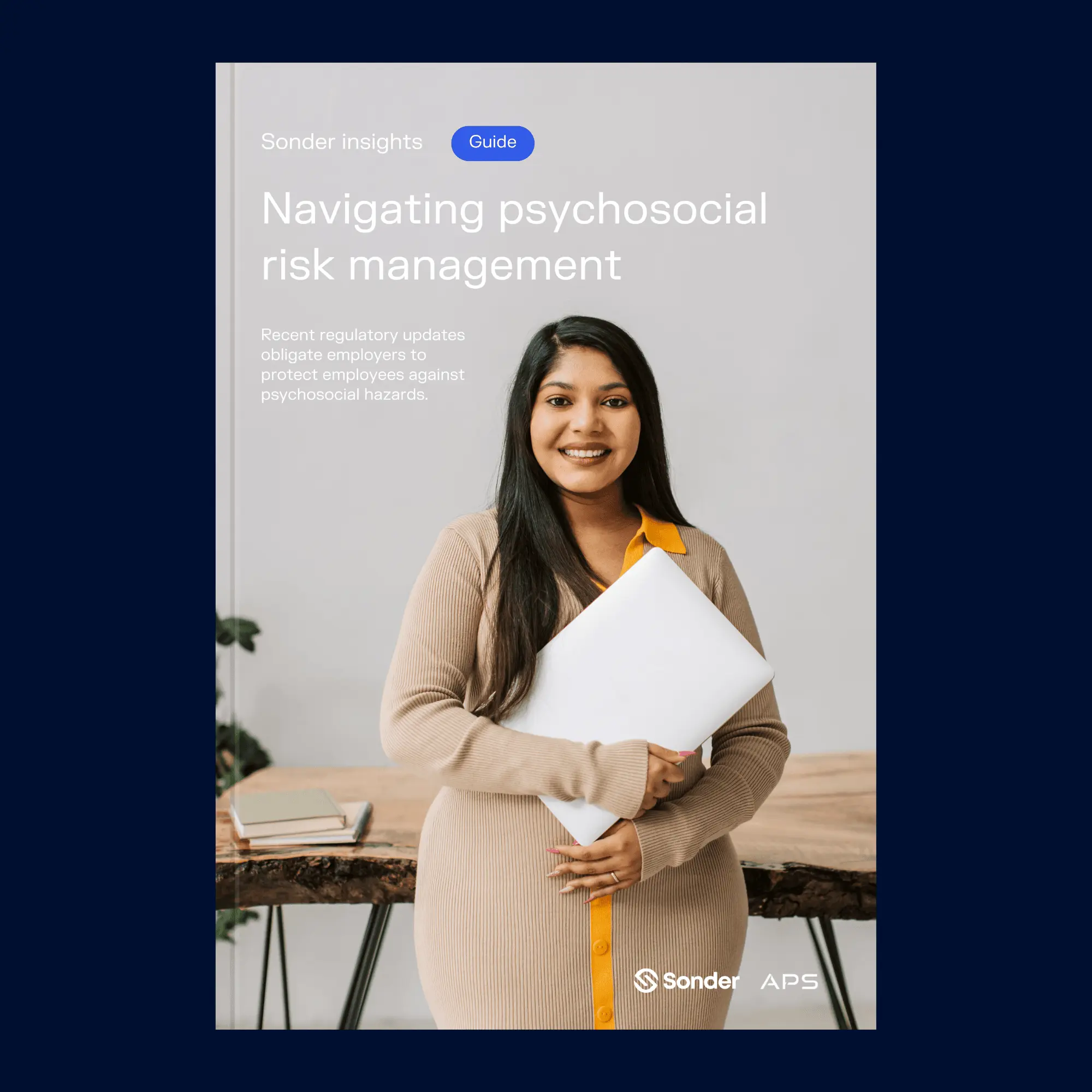
Navigating psychosocial risk management
Recent regulatory updates obligate employers to protect employees against psychosocial hazards. This guide, created in partnership with Australian Psychological Services, helps you navigate regulations and implement strategies to enhance employee wellbeing and ensure compliance.
Customer case stories
Measurable change across a range of industries
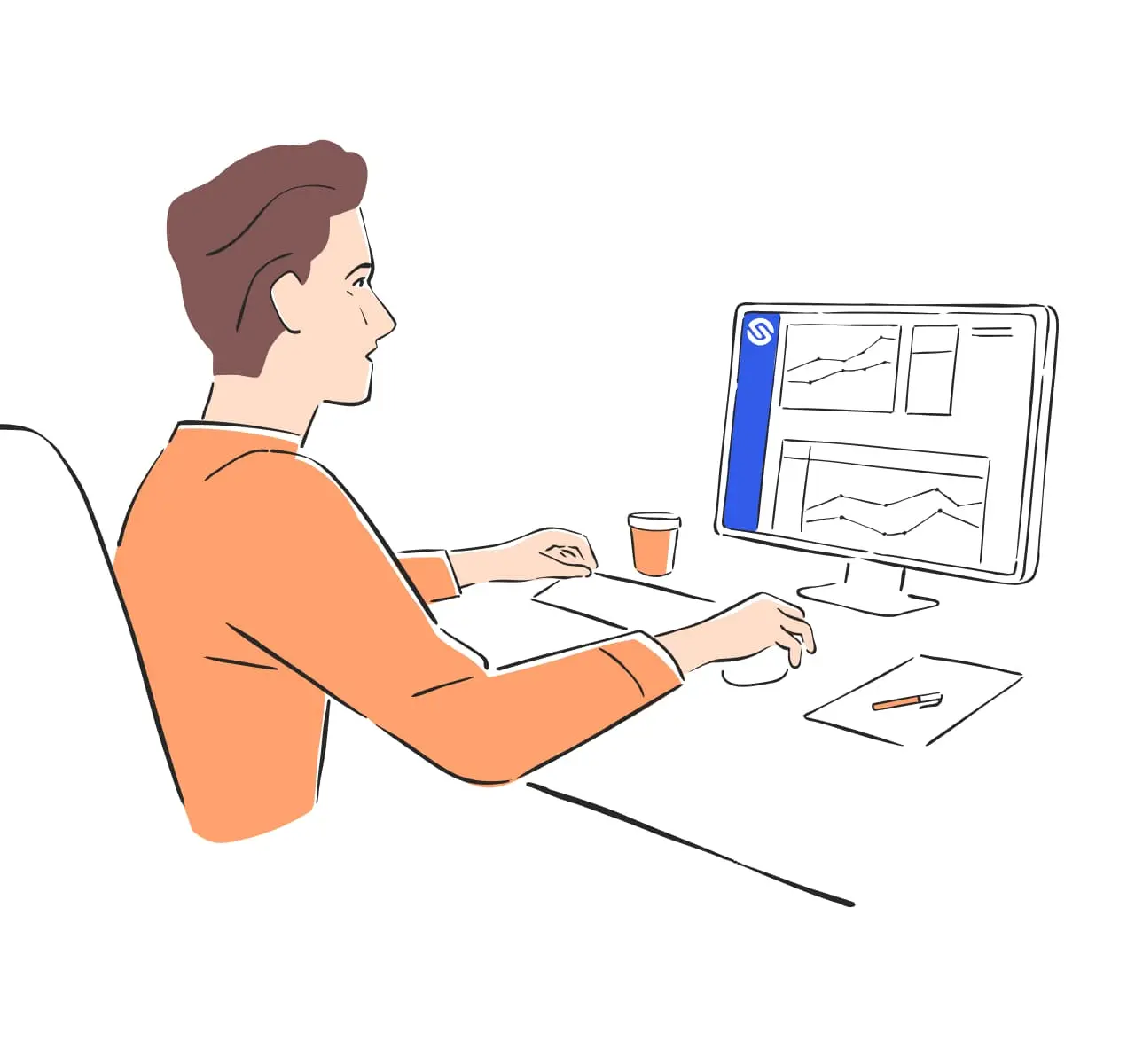
Build a business case for better wellbeing
Building the business case for early intervention and proactive, preventative approach starts with quantifying its value. Estimate the value that Sonder could bring to your company’s bottom line, based on recent member and customer data.


